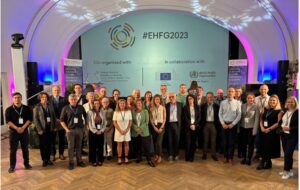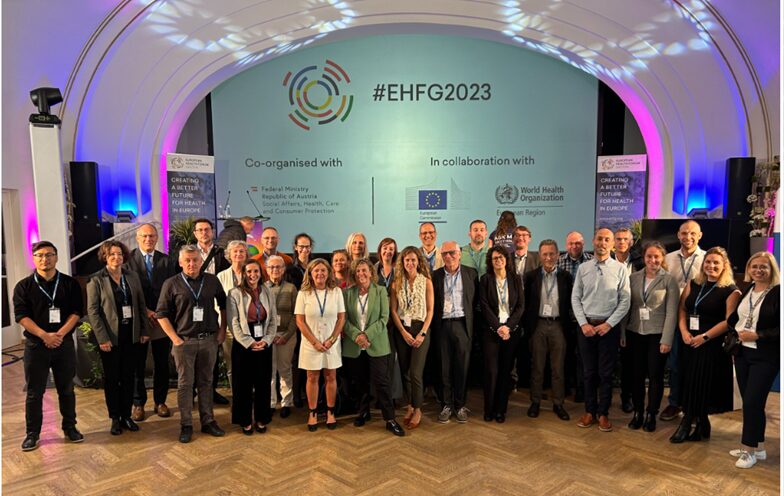The conference was held in Gastein (Austria) from 26 to 29 September 2023.
The European Health Forum Gastein 2023 focused on addressing the problems faced by health systems before the advent of COVID, such as the transformation of primary care and social care, inequalities in access to care, or the ageing of the population and the increase in non-communicable diseases. Likewise, the so-called “subsequent permacrises” – including an ongoing pandemic, the war in Ukraine, the cost-of-living crisis and the climate emergency – have only aggravated the situation of European healthcare systems and stretched health and care workers to the limit with professional fatigue and burnout. Since its founding in 1998, this health forum has become a key platform for politicians, senior health officials and experts in the field of health. In addition, the EHFG has established itself as an indispensable institution in the field of intersectoral European health policy and has made a decisive contribution to the transfer of experience and health information between Member States.
Within the program of the EHFG 2023, on September 28, a specific session was organized entitled “Accelerating the path to digitally-enabled integrated care. Sharing best practices for health systems transformation in the JADECARE Joint Action”. The objective of the session was to highlight the impact achieved in JADECARE Joint Action, coordinated at the European level by Biosistemak Institute (formerly Kronikgune) that targeted more than 4 million people in the EU at different levels (local, regional, and national). The impact achieved by the project covers aspects such as digital transformation, reorganization of care pathways, change management, and citizen empowerment, among others. The session also served to share the knowledge gained from the transfer of four original good practices to 21 European regions and healthcare contexts.
It is worth mentioning the participation of the Minister of Health of the Basque Government, Gotzone Sagardui, the director of the Semmelweis Institute and former Minister of Health of Hungary, Miklós Szócska, and Paloma Calleja, from the Subdirectorate of Quality of Care of the Ministry of Health of Spain in the session of the JADECARE project. Together with various members of the Consortium, Mart Kull, Chief Medical Officer of the Viljandi Hospital (Estonia), Christina Plomariti, Research Associate at the Aristotle University of Thessaloniki (Greece), and Jelka Zaletel, National Institute of Public Health of Slovenia they highlighted and discussed about the challenges faced by public health systems in Europe today, such as new technologies, digital transformation, costs, lack of professionals, and an increasingly ageing population, which makes it difficult to provide universal, equitable, high quality and financially sustainable care.
Watch the full session by clicking on the following link: https://ehfg.live/recordings/s15
Visit the official EHFG website to learn more about the topics covered and the full program: https://www.ehfg.org/

